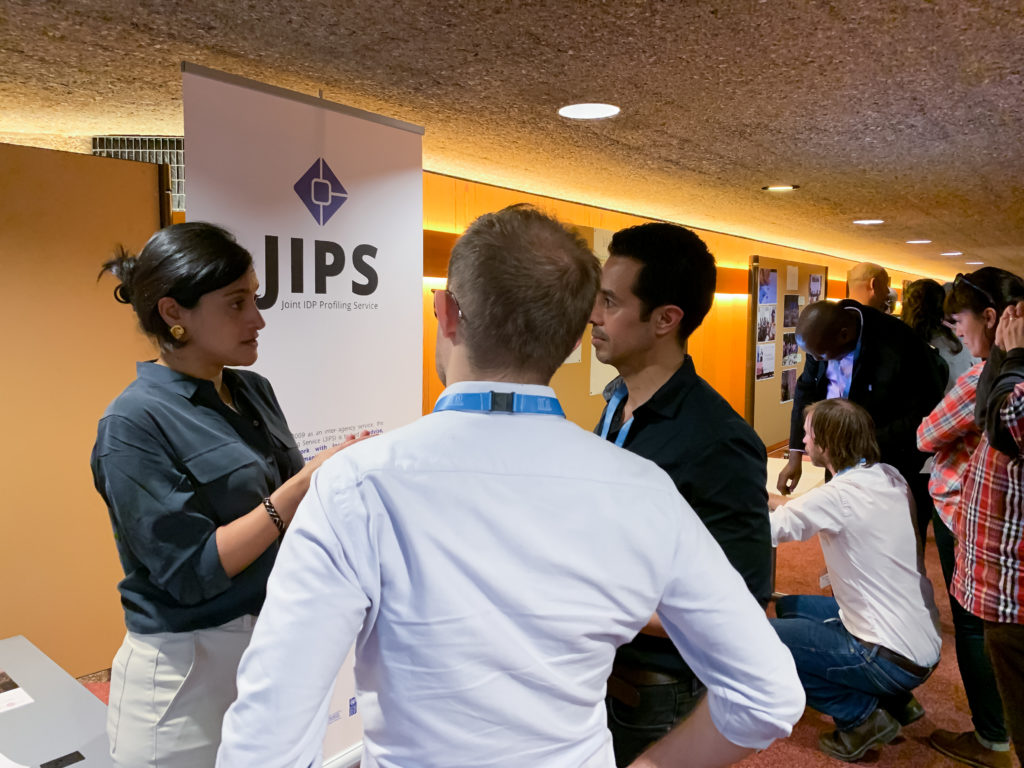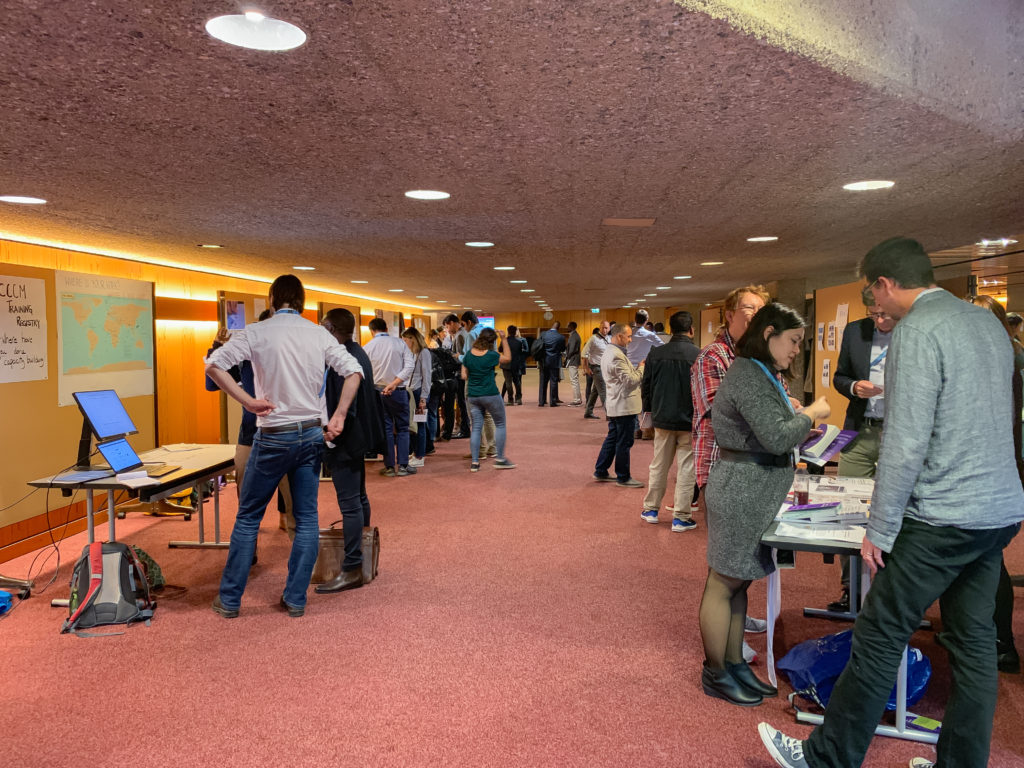At JIPS we were delighted to attend the Global Camp Coordination and Camp Management (CCCM) Cluster annual retreat at the start of October 2019, in Geneva. Taking place over two days the retreat brought together representatives from many humanitarian organisations and academia, offering the opportunity to share achievements, best practices and current projects, that could feed into the CCCM’s priorities and action points for 2020.
Building on our longstanding partnership with CCCM, we at JIPS were pleased to be able to participate in the active and popular Marketplace session. It was a great opportunity to catch up with CCCM colleagues and to exchange from profiling and other data collection approaches as well as lessons learned from them in an informal setting. Two takeaways from the team include:

Isis Núñez Ferrera, JIPS’ Head of Field Support and Capacity Building, speaking with CCCM representatives at the Marketplace.
Overall the marketplace was clearly a success: the room was bustling with people working their way around the various stands including: Sphere project, REACH, Shelter Cluster, IOM Philippines, IOM Greece, as well as many more, discussing and sharing their thoughts and best practices.
“This was a rare opportunity to have those involved with collaborative operations all together in one place. It was very useful to hear what others are working on and to talk with CCCM representatives from countries where we are active (as well as others) and to hear about some of the challenges that they face.” – Isis Núñez Ferrera, JIPS.
The topic of collaboration around data sparked a great amount of interest in our conversations; people were keen to hear about JIPS’ work, and related to the need for reliable and agreed-upon data in their own fields of work. Many participants shared the challenges they face at present with regards to good data practice, often focusing on the challenges of building consensus even amongst like-minded stakeholders. Whether it’s the lack of collaboration in a data and analysis process or just a lack of trust in the data itself, from our conversations it was clear the approach we take at JIPS was well received by attendees.

CCCM representatives engaging in the Marketplace session
Other topics that came up repeatedly during our Marketplace conversations were on durable solutions analysis, urban profiling and area-based approaches, with discussions about the applications of these not only in urban areas (where there is already a lot of focus on) but also how these could be applied in rural settings and areas of return.
It is no surprise, hence, that the session on “Planning for urban transformation and integration”, moderated by the Global Alliance for Urban Crises very own James Schell, attracted a wide range of practitioners. The session included Jim Kennedy, author of several site planning guidance documents, with an overview on key challenges particularly in engaging with the social, cultural and environmental context where sites are planned on, and led a group discussion on how we can learn from long standing urban development and planning practice to help us plan better and engage affected populations in the process. UN-Habitat’s Jonathan Weaver, currently deployed to UNHCR Bangladesh, discussed the need for strategic thinking and better anticipating the growth and potential social and spatial legacy of camps, as well as the need for sustainable and more coordinated investment in site planning in rapidly urbanising contexts.
When do camps become villages or towns? This is also a question we have been confronted with in the context of recent profiling exercises, such as in El Fasher, North Darfur, Sudan. The two IDP camps, Abu Shouk and El Salam, were erected on the outskirts of the city on land temporarily on loan and were only built to house the IDPs for the short-term. Over the years, with the protracted displacement situation and the growth and expansion of the town, the camps have become part of the city, however, they are yet to be benefited from service provision and integration. A strategic approach and the use of urban planning tools to better plan and manage such urban displacement situations, could greatly facilitate solutions especially for those IDPs seeking to locally integrate.
We look forward to continuing our longstanding collaboration with the CCCM Cluster as they develop their work further both in and outside camps. Through capacity building opportunities, sharing tools and experience, or engaging in direct field support, the annual retreat made it crystal clear how much opportunity there is to strengthen this partnership.